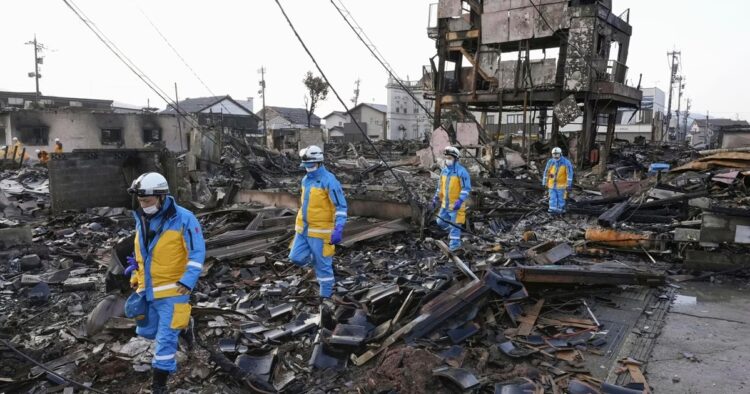In a tragic turn of events, a series of earthquakes hit Japan on January 1, claiming the lives of 100 people by Saturday. Rescue efforts are ongoing as the search for survivors continues amidst aftershocks, with the death toll rising from 98 earlier in the day.
The impact of the quakes has been severe, particularly in the Ishikawa region on Japan’s main Honshu island. The city of Wajima and Suzu witnessed 59 and 23 casualties respectively, while five neighboring towns also reported fatalities. Over 500 people are injured, with 27 in critical condition.
The aftermath has left 23,800 households without electricity and 66,400 without water supply in Ishikawa. Evacuation measures have been implemented, with 31,400 people seeking shelter in 357 government facilities.
The earthquakes, one of them registering a magnitude of 7.5, struck the Noto Peninsula, causing buildings to collapse and triggering tsunami alerts extending to eastern Russia.
Rescue teams are working tirelessly to free those still trapped under rubble. The United States has pledged $100,000 in aid, providing essentials such as blankets, water, and medical supplies. Prime Minister Narendra Modi has expressed condolences to his Japanese counterpart and offered solidarity, stating India’s readiness to extend assistance.
Despite Japan’s history of experiencing numerous earthquakes, this recent disaster has highlighted the vulnerability of even well-prepared regions. Japan faced a devastating 9.0 magnitude earthquake in 2011, which triggered a tsunami claiming around 18,500 lives.
As the nation grapples with the aftermath of this latest tragedy, the global community stands in support, emphasizing the importance of swift and coordinated aid efforts.

















Comments